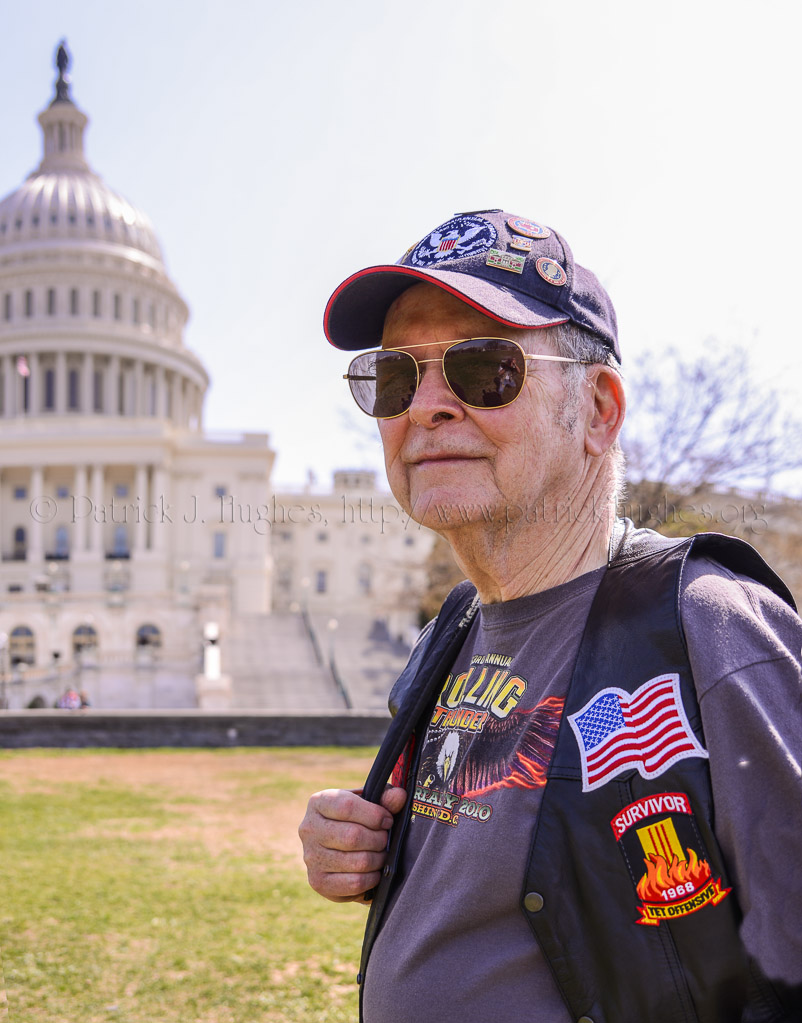LAWRENCE J. STARK, Civilian working for the Department of the Navy, Captured: January 31, 1968, Released: March 5, 1973
Larry was drafted into the Army in February 1958 and after spending two years in Germany
was honorably discharged.
In April 1966, I went to Vietnam with a construction firm as a labor coordinator. This work terminated in 13 months. My next tour in Vietnam was as a Navy civilian in Da Nang. After three months, I went to Hue which is in the northern part of South Vietnam, heading an industrial relations office which had the responsibility of hiring Vietnamese to work for various military organizations. It was while working in this capacity that Hue came under seige
and I was captured.
After spending two months in the hills outside of Hue and another month enroute to the North, we arrived at a camp in North Vietnam. I was to be imprisoned there and at other prisons in the North for the next five years. To add to one's loneliness and feeling of helplessness, I was forced to spend five months in solitary. Also, at no time during these five years was I able
to receive or send any communication.
A typical day would run something like this: We would rise at 6:30 a.m. and after washing would have breakfast which usually consisted of bread and a teaspoon of sugar with hot water. From about 7 a.m. until 10:30 a.m. we would do various things such as read
(if material was available which was not very often) or work on little projects such as
learning a foreign language. Lunch generally consisted of a bowl of soup with a spinach-like vegetable and bread or rice. There was a little pork fat in the soup. After lunch we would take a siesta from noon to 2:30 p.m. and then we would work on our mental stimulation projects. Dinner would be the same as the lunch and during the rest of the day we would just pass the time in conversation with our roommates. Our conversations would be centered around
our families, friends, interesting experiences as well as hobbies, interests and discussions of the fairer sex. At 9 p.m. we would retire for the night. I was seldom asked to work and had very little recreation.
We did receive some news while we were in prison, but most of it was full of propaganda, and there was very little said about the good things that were happening in the United States, such as the moon flights. There was, however, a great deal said about the bad things that were occurring in the States.
Upon returning to the United States I could not help but be aware of the changes that had occurred in the area of dress, hair styling, the liturgy of the Mass, and car styling to mention a few of the most obvious. But I have been most pleasantly surprised by the public concern in political issues. In thinking back I cannot recall such awareness before my capture. It is my
fervent hope that this concern is not temporary, but will be long lasting. I firmly believe that good government requires an alert and demanding public It is quite natural that our interest is on the POW-MIA issue, but let us not in our generosity forget to pray for the veterans and especially the disabled veterans of the Viet Nam conflict.
Larry lives in Maryland and is a activist with the LIVE POW issue. He has testified before Congress, and has spoken across the county on the Prisoner of War issue.


Share Share Tweet Share Pin It Email